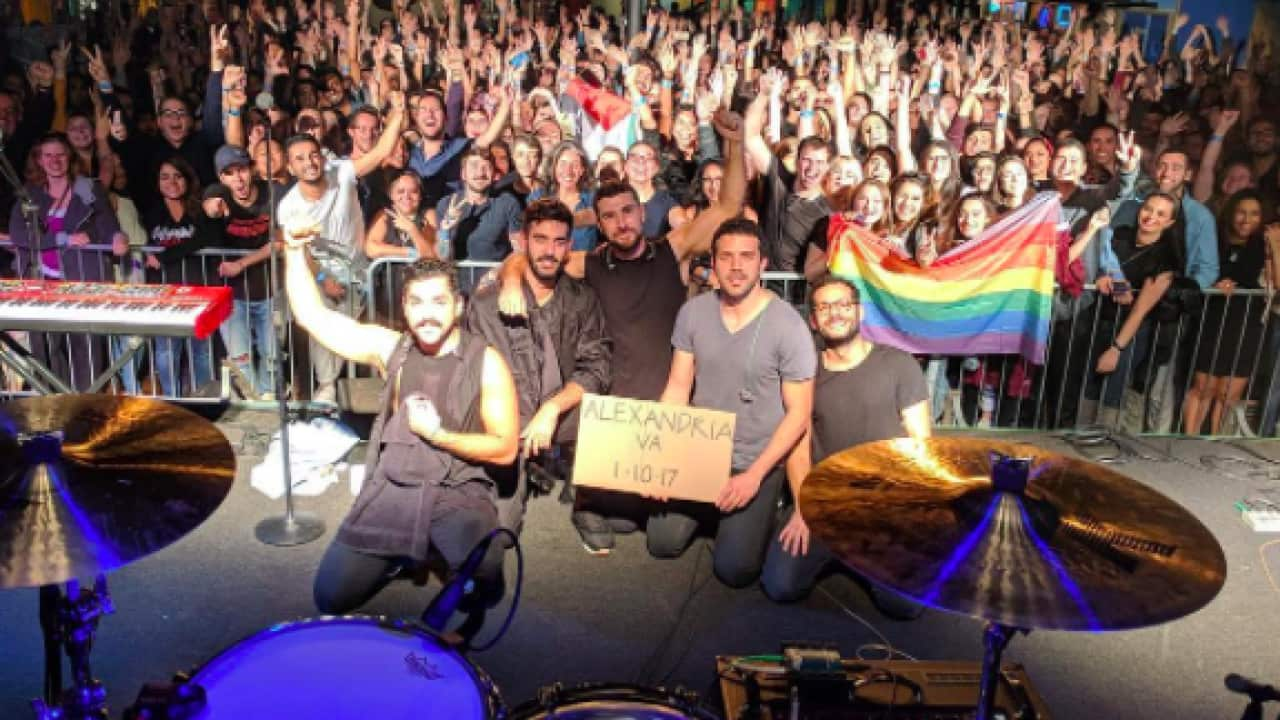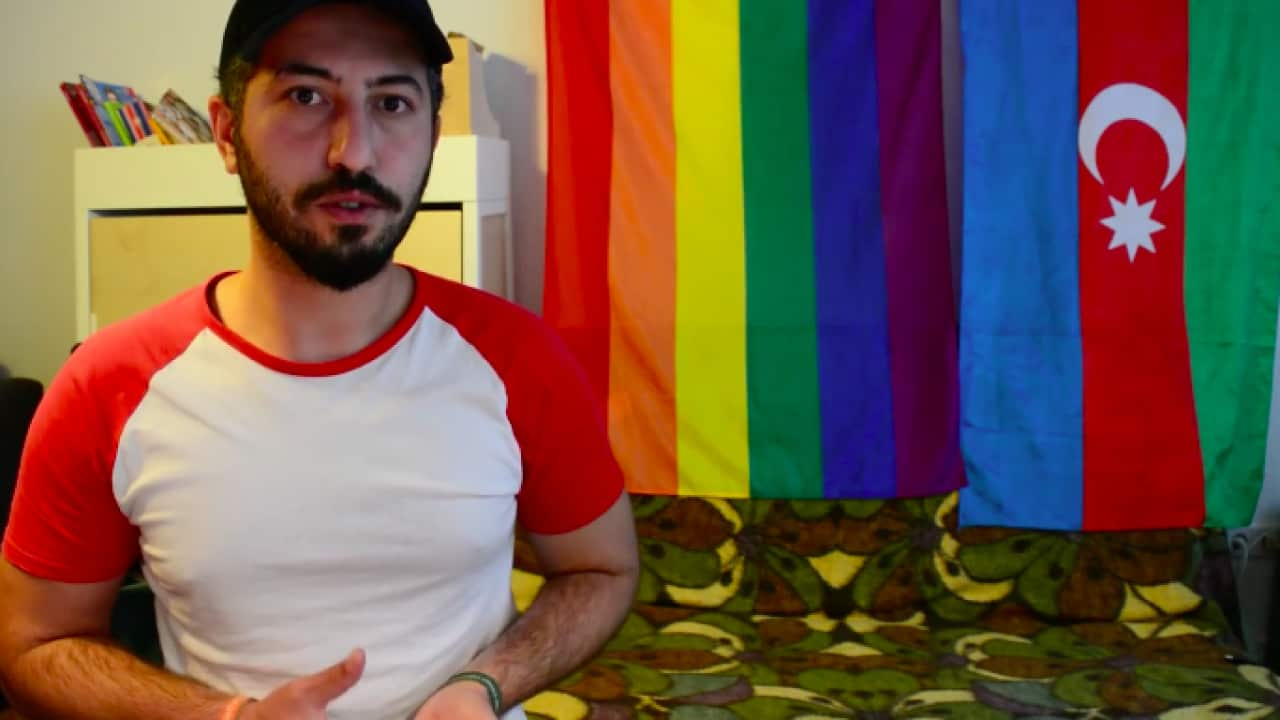Ahmed, 42, is gay. He lives in northern Egypt.
His sexuality is a secret he keeps from friends and family - everyone except the men he meets online. Ahmed’s boyfriend of over a year recently left him because he wanted to try being heterosexual.
“I can’t imagine how I will live without Omar,” he tells SBS Sexuality. “Sometimes I see him in my dreams.”
Over the several days that I speak with Ahmed, our conversation is often interrupted. When he needs to go work, is called by his wife, or has to put his two young children to bed.
“The children are sleeping,” he says one night, proudly promising to send photos of Aya and Ali.
Since Omar left him, Ahmed’s wife has been asking why he has been so stressed, why he has stopped eating. He told her he was having problems at work.
“It’s so hard to do,” he says. “Always lying about all the unusual behaviour.”
Once you exclude people from the social order, it doesn’t take that much to start a purge.
To be outed as gay in Egypt is to risk harassment, arrest, and death threats. “It’s dangerous,” he says, “especially for a married man.”
The situation has worsened for LGBT+ people over 2017.
At a , members of the crowd waved several rainbow flags – the lead singer of the Lebanese band is gay – prompting the government to arrest seven suspected flag-wavers on charges of “inciting immorality”. By November, local human rights groups were reporting that at least 70 suspected LGBT+ citizens and had had been arrested.
Legislators are now considering laws to impose prison sentences on LGBT+ people and advocates.
Egypt’s crackdown has followed the much more highly publicised crackdown in Chechnya, where men were arrested, tortured, and even killed by authorities and vigilantes. But it’s not just and , 2017 also saw LGBT crackdowns in and . Several African countries are attempting to outlaw LGBT+ advocacy.
In , 13 lawyers and advocates were detained for a week after meeting to discuss strategies. In Tajikistan, prosecutors have announced they’ve of hundreds of suspected LGBT+ people.
Graeme Reid, Director of the LGBT Right Program at Human Rights Watch, tells SBS Sexuality that the growing phenomenon of mass arrests has become a disturbing trend. In many countries homosexuality isn’t actually illegal, but authorities arrest people on dubious charges of public indecency, resisting police orders, prostitution, pornography, or immorality.
“In almost all instances it’s about government rhetoric that LGBT+ people represent some kind of a threat,” Reid says, noting that LGBT+ people are blamed for spreading HIV, perverting children, and undermining both religious and family values.
“Once you exclude people from the social order, it doesn’t take that much to start a purge,” he says.
Indonesia saw a spike in , and this year the rhetoric has turned into action. Dozens of men have been arrested in Jakarta, and in Indonesia’s conservative Islamic Ache province, gay men have been publicly caned.
Prominent LGBT activist ‘Hartoyo’ spoke to SBS Sexuality in May after images of two men being caned in May appeared on news sites around the world.
“He says he cannot go to school anymore and has ruined his life,” he said after speaking with one of the men. “He pitied his mother for being so shamed in society, she’s still crying.”
In Azerbaijan, dozens have been sentenced to weeks of imprisonment or given fines for their sexuality. Human Rights Watch has reported that men were beaten and given electric shocks by authorities trying to get more names out of them.
One young Azerbaijani tells SBS Sexuality that when he realised he was gay two years ago, the only other gay person he knew of in the entire world was American pop singer Adam Lambert. Now, through online dating apps, he has a handful of gay friends.
But dating apps in hostile countries have a dark side too. , whose devices are then confiscated and searched in an effort to track down more people.
“Social media provides a way for LGBT+ people to connect with each other in a way that feels safe, but once that network is infiltrated, it becomes very dangerous,” Reid says. “In Egypt there are security officials who are devoted to entrapping these individuals online, in some cases engaging in long conversations with them.”
What’s driving the crackdowns?
Reid says that the persecution isn’t persecution for the sake of it, it’s often done to achieve political ends. “The scapegoating of a vulnerable minority is a way of consolidating political power at a small cost,” he says.
Reid sees the uptick in LGBT+ groups being targeted as a symptom of a broader problem.
“Countries are emboldened by a broader attack on human rights at large,” he says. “The rise of populism in Europe and with Trump in America, it’s emboldened a lot of despots who feel they can act with impunity.”
Human rights and LGBT+ rights have been de-emphasised in the Trump State Department, with the president himself praising . After meeting with Egyptian President Abdel Fattah al-Sisi, accused of a , Trump he was a “fantastic guy”.
The increased awareness of LGBT+ issues globally - combined with increasingly vocal domestic advocates - may also be provoking the backlash. In Egypt, Indonesia and Chechnya, political leaders have used clampdowns on sexuality to position themselves as defenders of public morality, religious values and national pride.
The rise of populism in Europe and with Trump in America, it’s emboldened a lot of despots who feel they can act with impunity.
“The police and government are under pressure from Islamic groups,” Ricky Gunawan, the Director of a Community Legal Aid Institute in Jakarta tells SBS Sexuality. “LGBT people were targeted because it would regain trust from Muslim populations.”
For President Sisi, who has violently fought against his Muslim Brotherhood political rivals, a crackdown on the LGBT+ populations has also been a way to prove his ‘traditional values’.
“The crackdown awakened the homophobia of the masses. People are cheering for the arrests of the gays,” one gay Egyptian man told .
Reid says it’s very easy to target a minority that is unpopular and sometimes reviled. “It doesn’t cost Sisi anything politically but he gets some currency from doing it,” he says.
It’s a playbook which has been by Russian President Vladimir Putin, who characterises LGBT+ freedoms as a Western construct that will undermine traditional family values.
After Ukranian protesters turned out on Maidan Square to rebel against their pro-Russian government in 2014, Putin referred to them as “gay nazis” while some in the Russian media referred to the location as “Gay-Euromaidan”.
While Western governments have loudly condemned the gay purge in Chechnya, a Russian territory, Reid says there’s been “deafening silence” about Egypt. While Russia is an adversary to major Western countries, Egypt is an important economic and strategic ally.
What can you do?
As I speak with Ahmed and others in Azerbaijan and Indonesia, they ask about my situation. I send them photos of me and my partner a world away in New York City. I tell them Australia just legalised same-sex marriage.
Some of them will never escape from harassment, others will flee their countries and try to start new lives elsewhere. Some, like Ahmed, will be forced to live their entire lives lying to their friends, partners, and children.
I ask Reid what LGBT+ Westerners, having won many significant battles in their own countries, can do to help those still living in violent, oppressive situations.
He says that people can put pressure on their own governments to take a stand for LGBT+ rights internationally and to be sympathetic to LGBT+ refugees.
On an ad hoc basis, some Australian embassies in Asia have been known to lend support to local LGBT+ groups. But people can also support local groups and organisations directly, Reid says.
is a group pushing for LGBT+ rights in Indonesia. is the Indonesian community human rights and legal aid group Ricky Gunawan founded.
The was instrumental in bringing attention to the gay purge in Chechnya. is an umbrella group of LGBT+ advocacy organisations.
in Canada works to evacuate people from hostile situations. , also based in Canada, focuses on queer refugees in Iran.
“You can keep informed, and respond when requested,” he says. “But the leadership should come from groups within the country because they know when it’s best for foreigners to be speaking out, and when it’s best for them to be keeping quiet.”
Ahmed’s name, and the name of his family members, have been changed for his protection.







